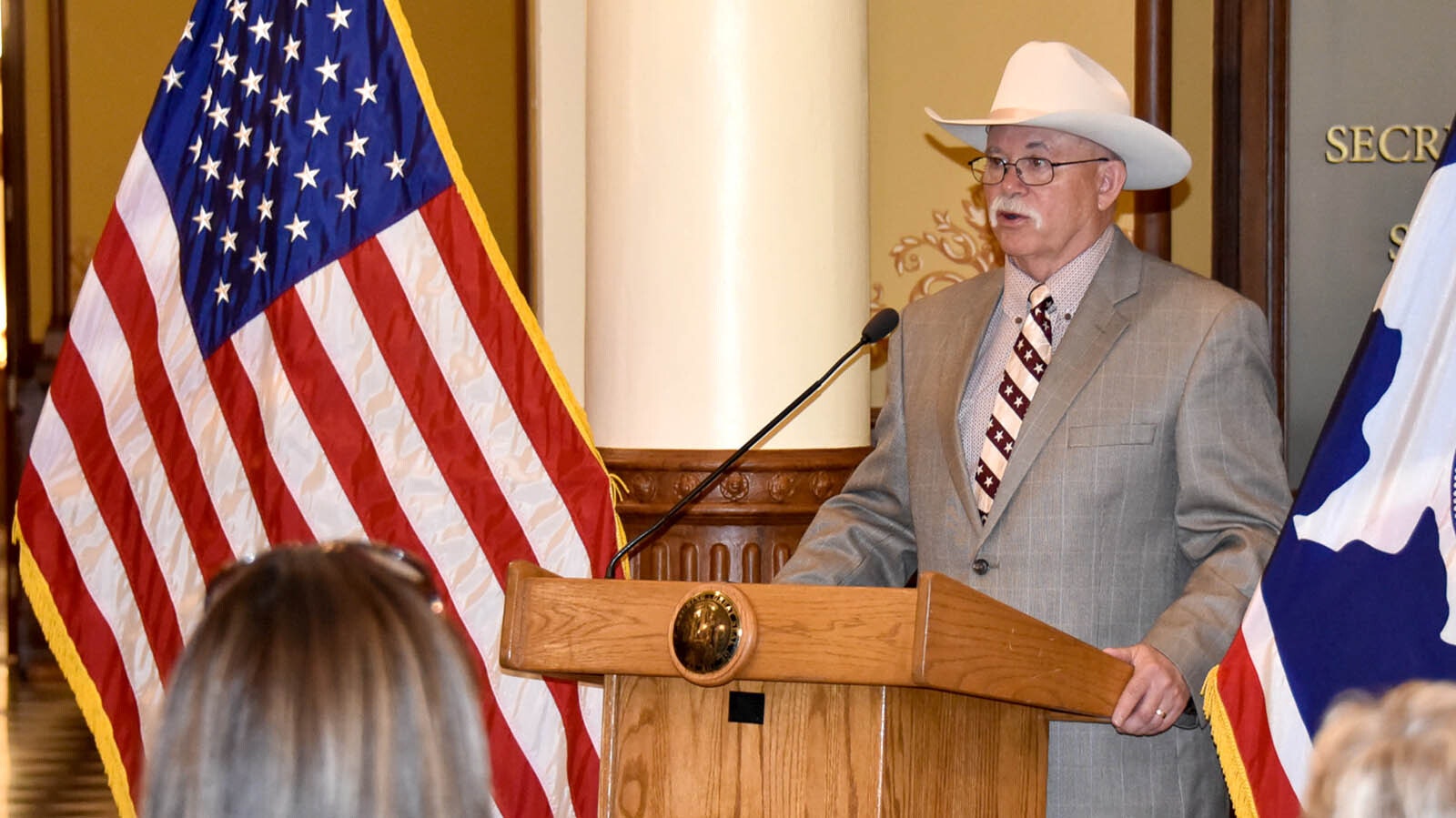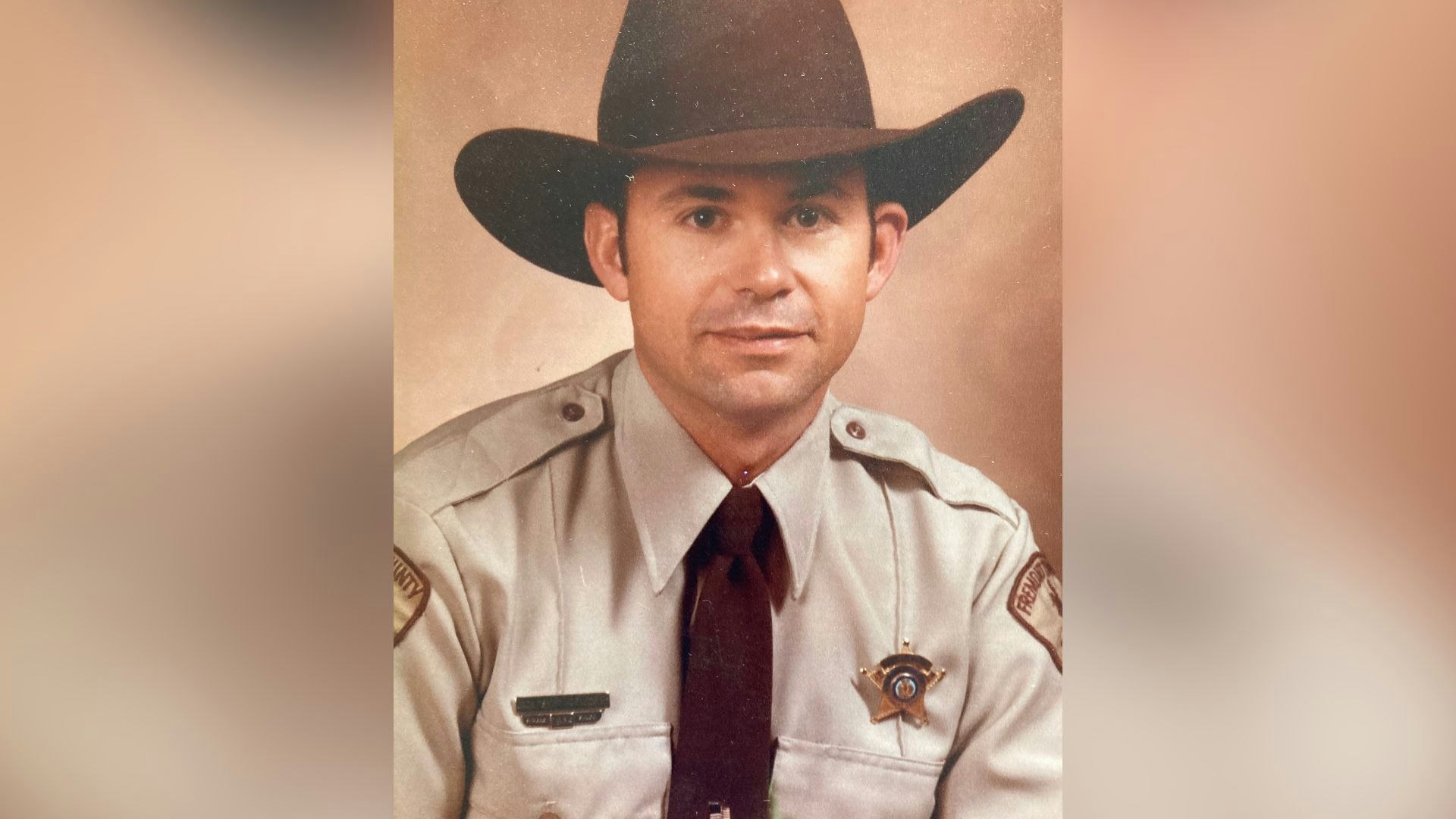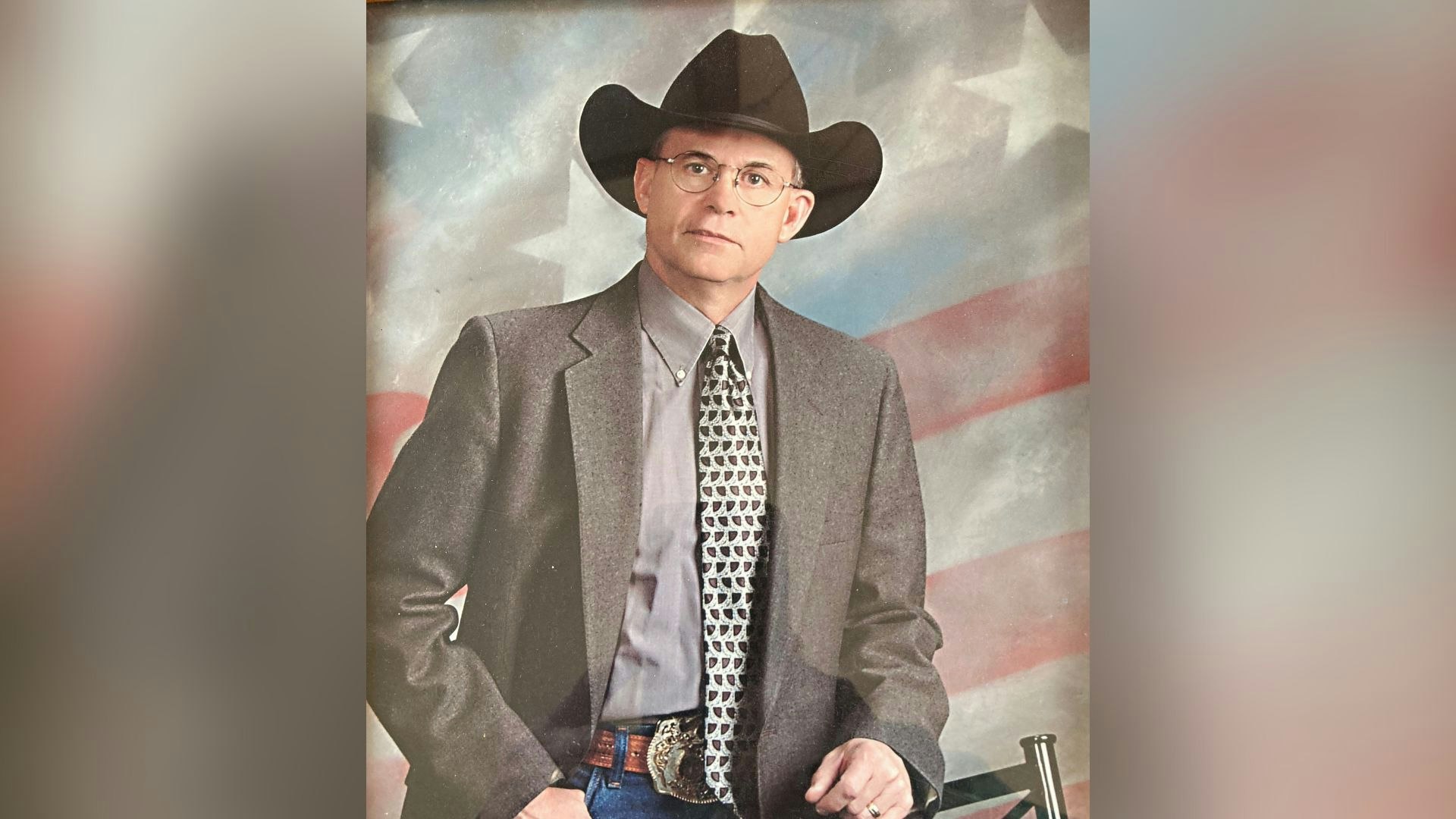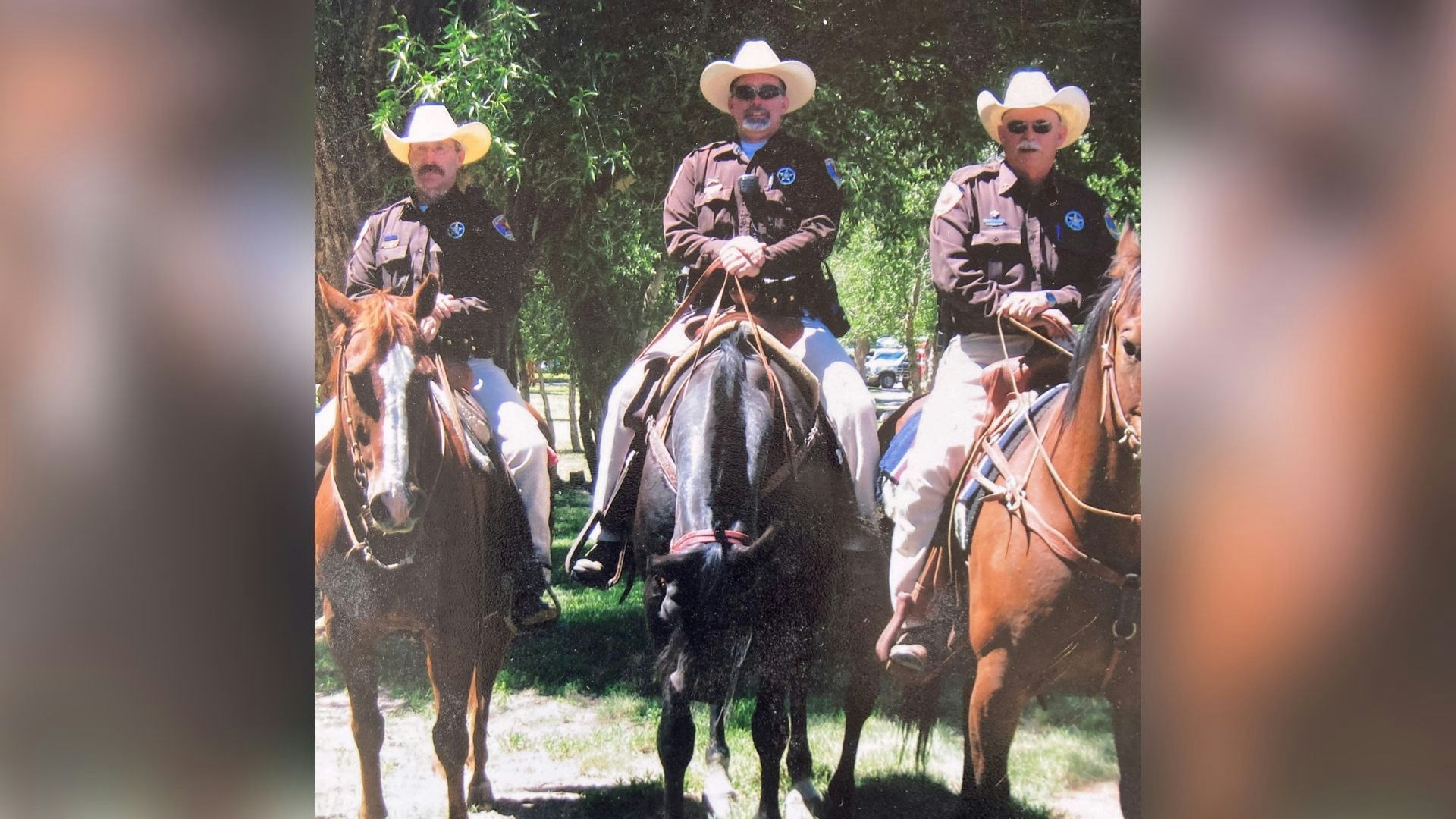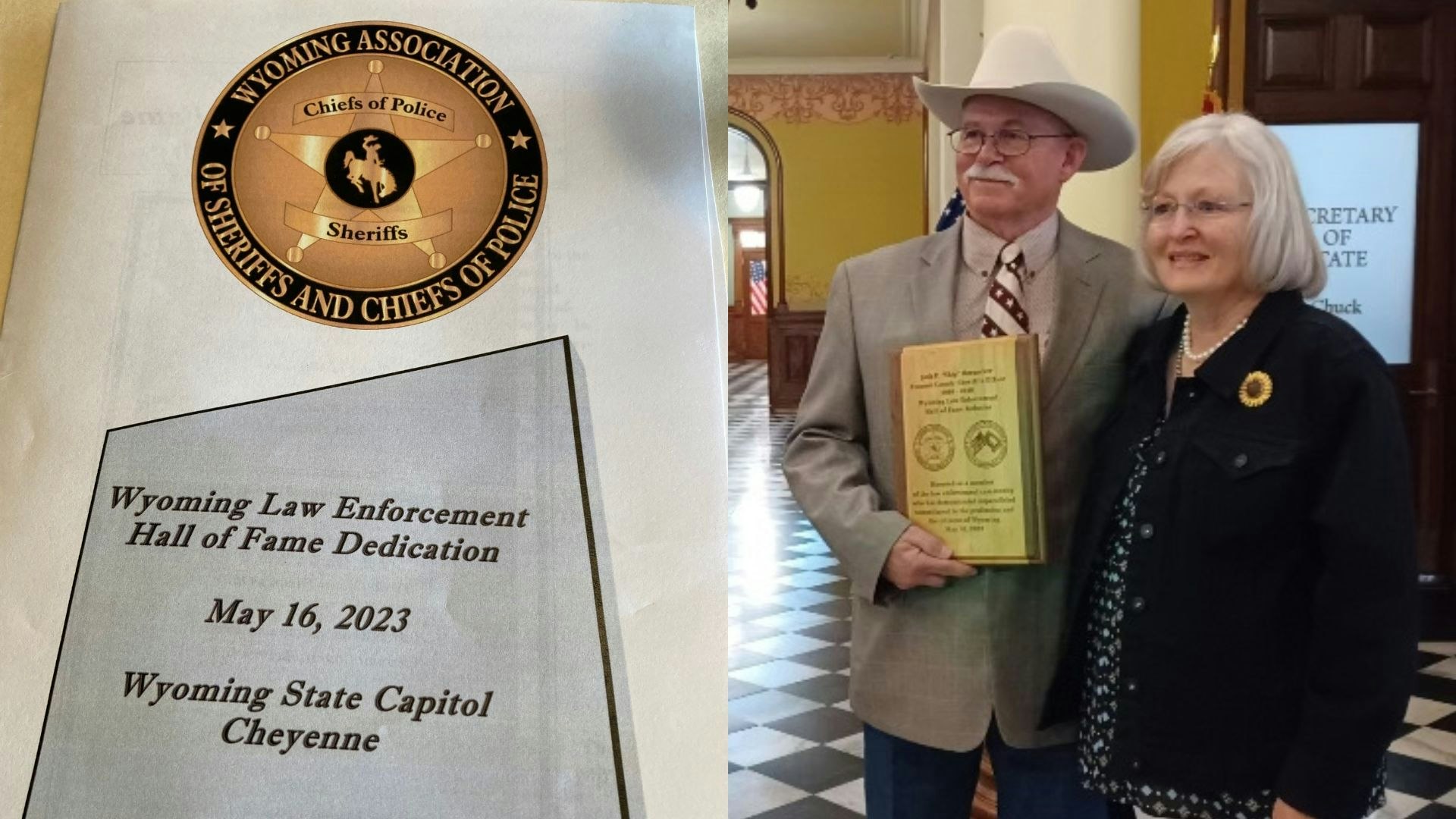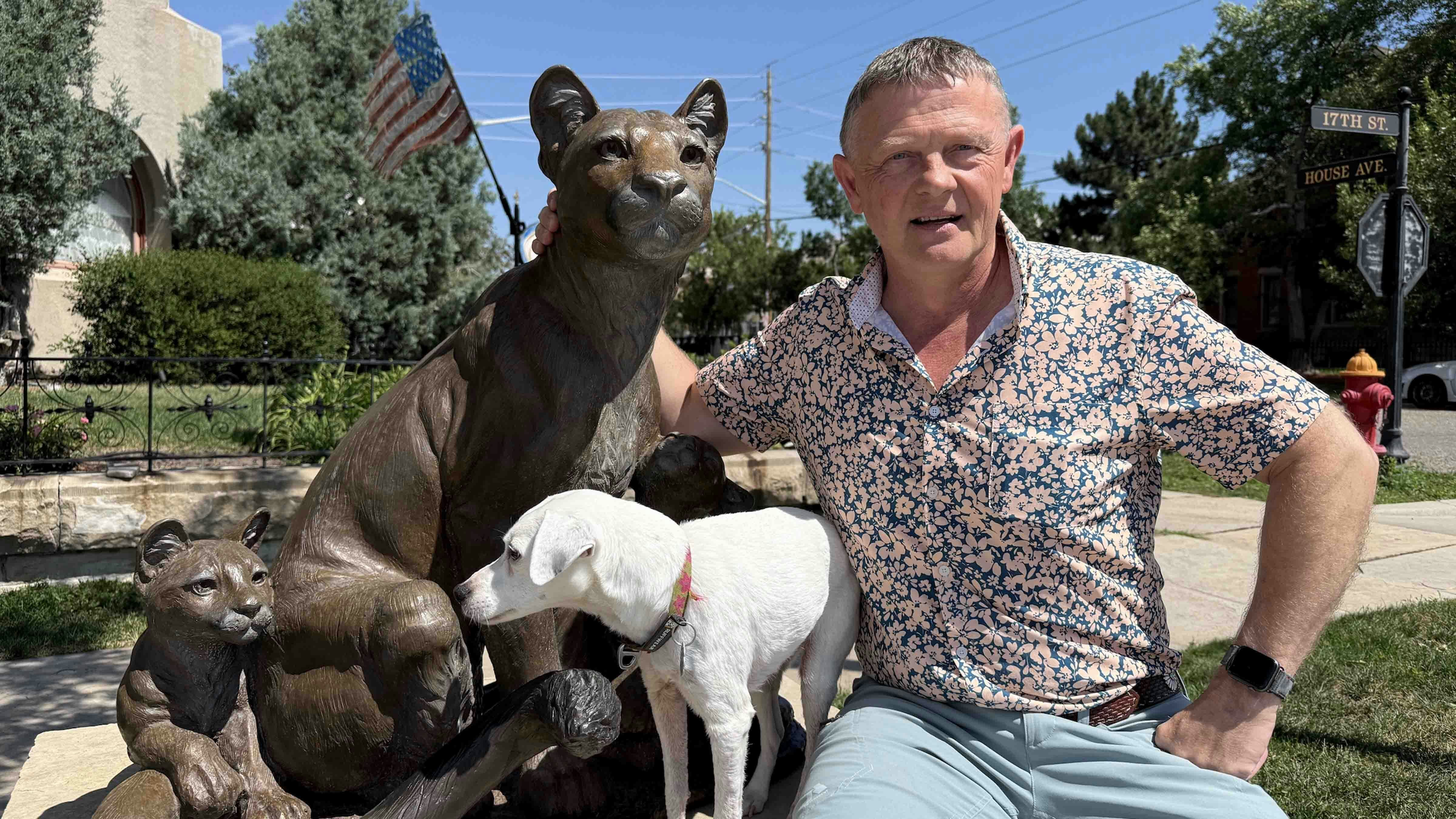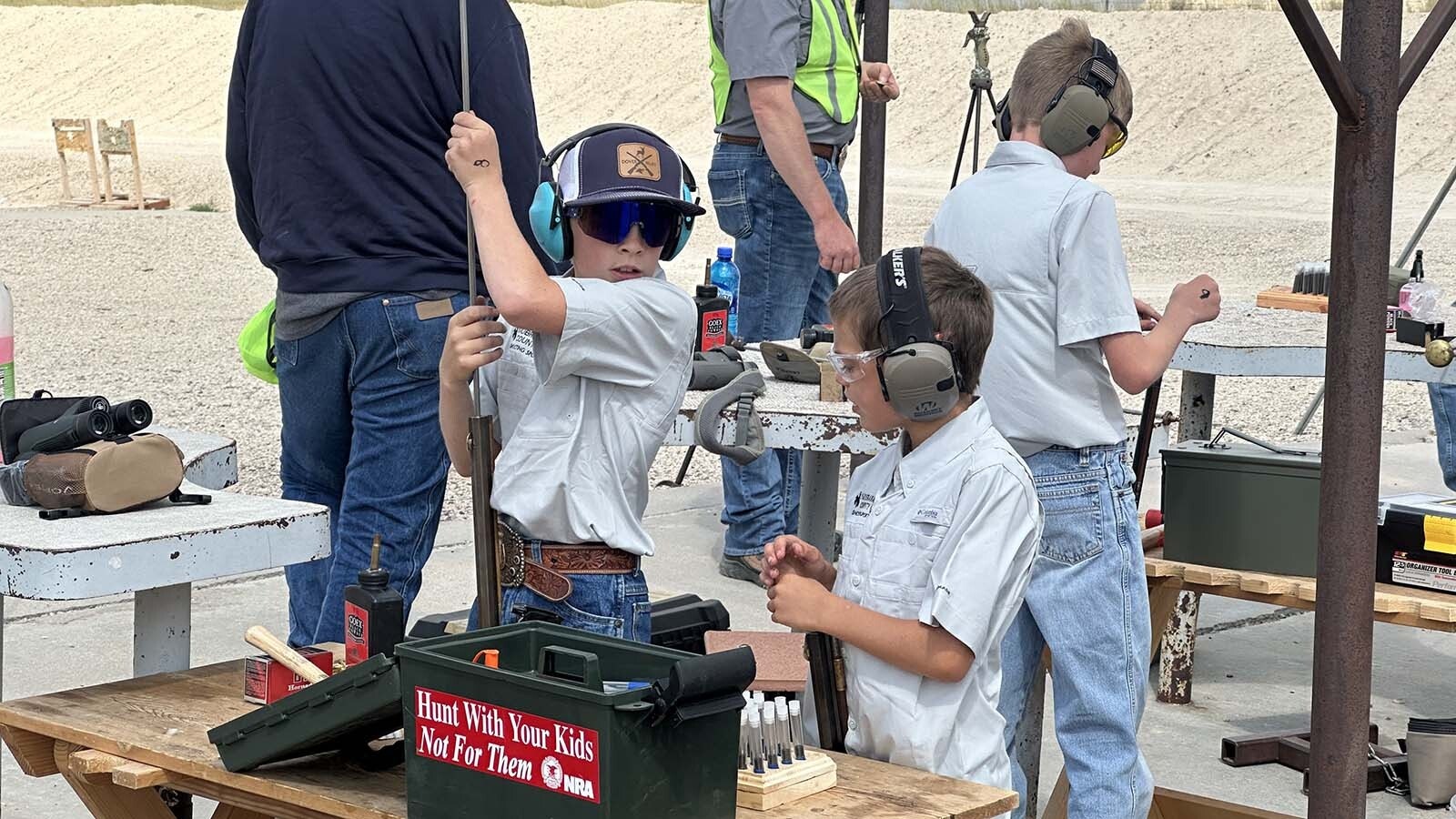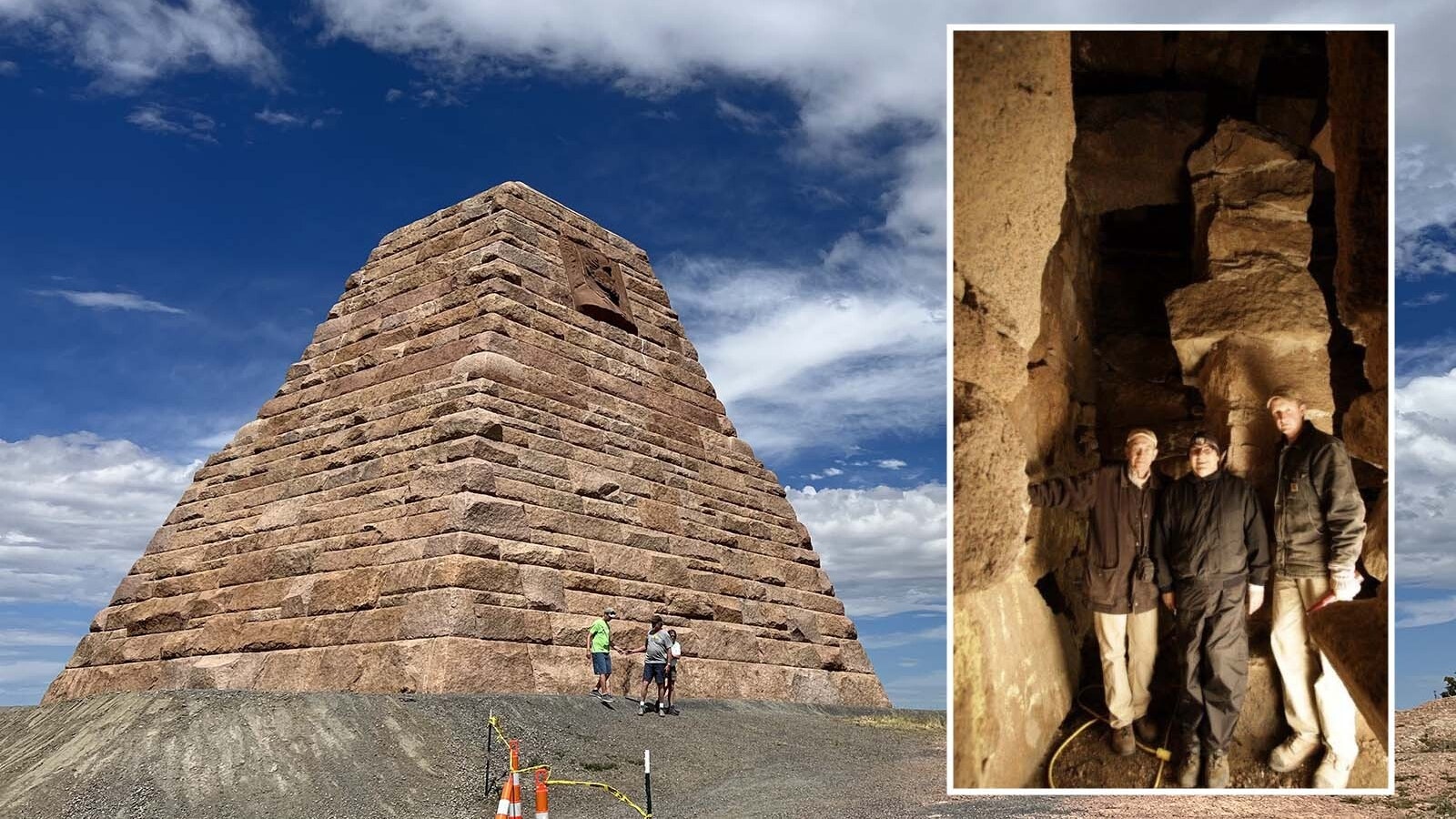A young Skip Hornecker didn’t realize nearly 40 years ago he was about to embark on a decades-long adventure.
In 1984, Hornecker took his first job as a detention officer in Fremont County, serving under then-sheriff Tim McKinney. Hornecker said he figured McKinney hired him, in part, to keep an eye on him.
“Tim and I were friends before I went to work for him,” Hornecker told Cowboy State Daily. “A lot of people who knew me thought maybe the reason he put a badge on me was because it was easier to keep track of me.”
In 2018, after 34 years in law enforcement, Hornecker retired. And last week, that long career culminated in being inducted into the Wyoming Law Enforcement Hall of Fame.
“I was just overwhelmed,” said Hornecker of the recognition. “I'm just amazingly honored."
‘A Wild Little Guy’
Hornecker grew up in Fremont County in a family that had been there for generations.
“My family is a pioneer family here in Fremont County,” he said. “And I was quite a character when I was young, for sure. I was a ranch kid, a cowboy, a bull rider. … I was kind of a wild little guy.”
Hornecker said until Sheriff McKinney hired him as a part-time detention deputy, he had no desire to be in law enforcement.
“When I was a kid, I was going to be a rancher, a cowboy, and I had no thoughts of going into law enforcement at all,” he said. “Why he hired me, I really don't know. It was just the way God worked for me in my life. But (the work) became so addicting, and I knew immediately it was my calling. I was good at it.”
Hornecker worked his way up from part-time detention officer to full-time, then was promoted to a patrol deputy position in Lander. At one point he said he transferred from Lander to Riverton, patrolled there for “a while,” then transferred back to Lander as a patrol deputy and stayed there until McKinney’s 12 years in office ended in 1990.
After his friend's term ended, Hornecker transferred over the mountain to Sublette County, where he was one of the first DARE (Drug Abuse Resistance Education) officers in the state, promoting a nationwide effort to teach school-aged children about the dangers of drugs.
“I went over to Sublette County to help them get their DARE program cranked up as a DARE officer and a deputy sheriff,” said Hornecker. “I think it was over there only about eight months, and I was recruited to be an instructor at the (Wyoming Law Enforcement) Academy.”
Hornecker’s four years in Douglas as an instructor was a highlight of his career, he said.
“I learned a lot from being there,” he said. “The stuff from the academy as an instructor I used every single day as a sheriff and an administrator.”
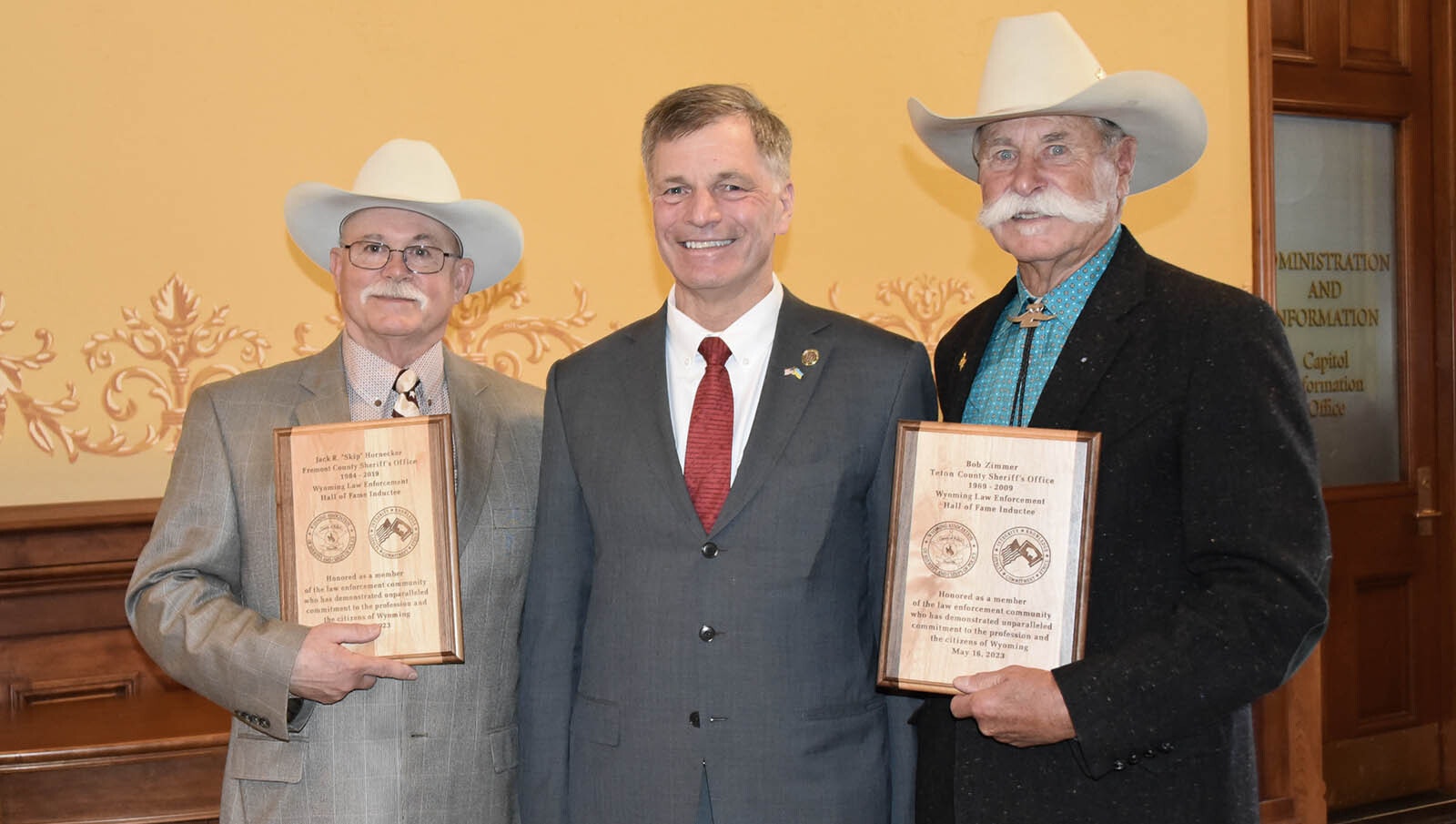
Back Home To Stay
In 1995, Hornecker was called back to Fremont County after a tragedy in the sheriff’s department.
“Our detention administrator at Fremont County was killed during a transport, unfortunately,” said Hornecker. “And so I came back here under Sheriff (Larry) Mathews at the time and was the detention administrator.”
For the next eight years, Hornecker rose through the ranks, promoted to lieutenant, and then to captain, overseeing the detention center and some administrative sections.
Then he decided to go for the top job.
“In 2002, I was elected sheriff,” said Hornecker, a position he would hold for the next 16 years. “They tell me I was the second-longest serving sheriff since Pee Wee McDougal, who was kind of my generation's hero. He was a sheriff for a long time when we were all kids. Quite a gentleman.”
As sheriff, Hornecker expanded his influence beyond the borders of Fremont County. While in office, he served as president of the Wyoming Association of Sheriffs and Chiefs of Police and was heavily involved in the Western States Sheriffs Association and the National Sheriffs Association, as well as serving on several governor-appointed boards.
“That involvement helps you grow and keeps you green, and keeps you inspired,” said Hornecker. “It gives you that intrinsic motivation to continue to do better and to learn more. I don't think I ever stopped learning for 34 years.”
Technology Advances In Law Enforcement
Since Hornecker began his law enforcement career, there have been a number of advances in technology that make it easier to do his job — and some conveniences that people take for granted today.
“When I was a deputy and used to get call-outs in the wee hours of the night or early morning hours, the phone would ring and everyone in the house got woke up, because we didn’t have cellphones back then,” he recalled.
Communications technology has improved dramatically in other ways as well, said Hornecker.
“We had areas around Fremont County that did not have radio contact and you were kind of on your own,” he said. “All of us old dinosaurs always laugh a little bit about the saying of, ‘One Riot, One Ranger.’ And that's how we worked. We had to work independently a lot with no backup.
“Nobody could get to us probably within 40 minutes or more, so you learned how to handle yourself, and you learned good interpersonal communication.”
Cellphones weren’t the only “newfangled” tools then, he said, adding that the beginning of his career coincided with the emergence of the computer age of law enforcement.
“Not long after I became a deputy, they started with these little computers that were really just glorified typewriters,” he said. “Now, in this digital age with computer technology, information that comes to the deputy on the street is almost instantaneous, versus back then when it would take you days to get certain information, like the background checks on people and those kinds of things. So that's been a benefit.”
On the other hand, he said paperwork seems to have become more complicated since he started his career in the mid-1980s.
“I think it took less time to do reports and those kinds of things after an event (back then),” said Hornecker. “So you can look at it also that (computers) cause you more work from time to time, because you get into things deeper.”
A Changing Society
Hornecker said that he’s seen a change in the way policing is approached throughout the state as well, which he attributes to a changing society.
“When I first started, the majority of Sheriff McKinney’s staff were rural ranch-type deputies,” he said. “We were dealing with a rural mentality where most people were taking care of their own problems and so on.
“But nowadays (people) call law enforcement, whether it'd be a police officer or sheriff's deputy, for really minor issues that maybe could be taken care of with just reaching out to the person they're having a problem with.”
Hornecker said that change is less noticeable in Wyoming than in more urban areas of the country. He recalled a training he attended in Los Angeles several years ago, and a conversation he had with law enforcement officers there about firearms.
“When I would tell a Los Angeles police officer that every vehicle we stop in Wyoming has a gun, it really freaked them out, because someone with a gun in a vehicle in Los Angeles has a gun for a totally different reason than what we have in Wyoming,” he said. “If I ever got in a mess out on a county road some place all by myself, that rancher coming down the road with a gun is going to help me, he's not going to hinder me, and they had a hard time understanding that.
“But that's one of the things that is so unique and wonderful about Wyoming. And still is, to a great extent.”
“I hate the term ‘cop’”
Hornecker said a nationwide decline in respect for law enforcement has made its way to Wyoming, although not as significantly as it is in other parts of the country. But he said he patterned his career under the philosophy of being a “peace officer” rather than a cop.
“I hate the term ‘cop,’” said Hornecker. “We’re there as peace officers. We’re there to serve, we're there to help. I think law enforcement had to evolve to this point because of the dangers that they’ve experienced, they actually have gotten to the point where they're really paramilitary, and they've lost some of the trust that the public used to have, to a great level.”
But in Wyoming, Hornecker said law enforcement officers on the whole are still trusted and respected.
“I tell people often we're so lucky to live in Wyoming, because we don't see (that disrespect) at the level that you see on TV and you hear about in the big cities,” he said. “We still do see it, we still are still feeling it in Wyoming, but not as much.”
Cowboy Poet
A lesser-known fact about retired Sheriff Hornecker is that he writes — and recites — cowboy poetry.
“I've always lived on a ranch,” said Hornecker. “I'm a cowboy guy, you know, and I've always rode horseback and worked cattle, and my dad was a cowboy and rancher. So, some of these things that I've experienced or felt or thought of, I just started putting on paper.”
When he was a junior in high school, Hornecker wrote his first poem about his dad.
“It's one of my favorite poems,” he said. “So it started there, and then I just started putting words on paper and they rhymed.”
A few of his poems have made their way into some local publications, but Hornecker said he hasn’t written anything new in several years, although he said some of his friends have been urging him to put pen to paper again. But he said the creative process is something that can’t be forced.
“I had a few people want me to go to Rotary meetings and so on, and I’ve done a couple,” said Hornecker. “I've done some funerals for some really good friends of mine. So, it pops up every now and again.”
Retirement And Hall Of Fame
Hornecker chose to retire in 2018, and said he’s proud that he was never defeated in an election.
“I was re-elected each time," he said. "In fact, pretty overwhelmingly each time.”
Another source of pride is his induction into the Wyoming Law Enforcement Hall of Fame last week state Capitol in Cheyenne. As just the 12th person to be inducted into the Wyoming Law Enforcement Hall of Fame, Hornecker said he realizes the significance of the honor.
“It’s not like it's an ‘as soon as you retire' kind of thing or anything like that,” he said. “You're nominated by your peers throughout the state, and then it goes through a vetting committee, and then they determine whether you're worthy, I guess, of being inducted.”
And Hornecker wasn’t alone in being inducted Gov. Mark Gordon, who Hornecker said is a personal friend.
“Governor Gordon and I go way back. It was good that he was a part of it,” he said. “And I was inducted with a good friend of mine, Bob Zimmer. He’s the retired sheriff from over in Teton County. He and I both were inducted at the same time.”
Hornecker said he felt especially honored, because he was following in the footsteps of the man who started him on his law enforcement journey.
“The sheriff that hired me, Tim McKinney, has also been inducted into the Hall of Fame,” said Hornecker, “so I'm pretty proud that I got to follow him into the Hall of Fame as well.”
The celebration included Hornecker’s entire family, which — considering the size of his family — is saying something.
“My whole family is there, and I have a pretty large family,” said Hornecker. “I have three kids and 10 grandkids. And they were all there.”
Hornecker’s Legacy
While the Hall of Fame is a tribute to his law enforcement career, Hornecker said his real legacy is his family, which has been his focus since retiring.
“I can talk about my family forever. I have an amazing family,” he said, singling out his wife, Margie, in particular. “My wife and I've been married for 48 years, and she's just literally my best friend. I was kind of a wild young man, and she latched on to me and settled me down.”
The couple’s three children, Heath, John and Lindsay, have created successful careers of their own, and the last couple of weeks have been filled with graduation celebrations for several of their grandchildren.
“My legacy is my family,” said Hornecker. “That's the way it is. That's how close we are.”
To Serve And Protect
He does remind anyone who is considering a career in law enforcement that the primary focus of the job is to serve and protect.
“It cannot be just a job, it's something that you really have to dedicate your life to,” said Hornecker. “And if someone goes into this law enforcement career with any kind of inclination that you're going to make a lot of money, they’re going to be sorry, because it is not a very high-paying job.”
But a career as a peace officer is never about the money, he said.
“I really like to tell young people that if they are going to go into law enforcement, keep in mind, we're there to serve,” he said. “We're not there to ramrod people, we're not there to be their boss, we're not there to dictate to them what their life should be. But it is an amazingly rewarding career, for certain.”

